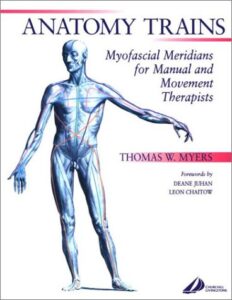CP Internship Blog by Sam Leahey – Appreciating Differences
Preface 1
If you’re like me, you foster a great appreciation for the work Eric Cressey does both in cyberspace and in person through mediums like seminars, conferences, etc. However often times Eric’s readers do not benefit from what goes on behind the scenes at Cressey Performance. In fact, I would venture to say that at most top notch Strength & Conditioning facilities around the country this privilege often falls upon interns, as they are learning day in and day out from the entire staff.
So, my fellow Cressey disciples, never fear because there is a solution! Eric has asked me to write regular blog posts regarding my internship here at Cressey Performance. This will include many training epiphanies and revelations, “ah-ha” moments, coaching insights, and just flat-out Eric Cressey madness! Being able to get inside the mind of Eric Cressey and his staff is a tremendous honor and I would love to share all that comes out it.
Hope you enjoy!
Appreciating Differences
We had a splendid seminar recently at Cressey Performance with Neil Rampe as the speaker. Beyond the actual shop talk I noticed a similar thread in his speech. He often would finish up a slide summary with the question “Can you appreciate that?” He’d present his knowledge and then ask the audience, “Can you appreciate that?” Notice what he did not say. Neil didn’t present his rationale, science, and/or theory and ask attendees “Do you see how I’m right and so and so is wrong?” In fact, I don’t recall him ever even using the words “right” or “wrong.” It was always “Can you appreciate this or that?” In one such example he taught to appreciate asymmetries in the body. More specific to this discussion though, Neil discussed the appreciation of different schools of thought from Janda, Sahrmann, Kolar, Myers, PRI, and others.
This concept of appreciating different perspectives, instead of trying to prove right or wrong, I find more and more useful the longer I coach. More practically, I find this coming into fruition over simple things in the Strength & Conditioning field. Take a simple exercise like the One-Arm Cable Row for example. Should you retract both shoulder blades when your row or just the side that is doing the rowing? Is one way right and the other is wrong? Really? A more noble argument I’ve found is which one is more optimal for what you’re trying to accomplish. In reality neither one is wrong; they’re just different!
What about if you place certain components of your program in different spots than others. Is it “wrong” to put static stretching at the beginning or end of a workout? Is either way “right?” I don’t think so. They both can be applied appropriately at either end of the session. What about a quadruped t-spine mobility drill. Should the arms and femurs be completely perpendicular to the ground or should you be sitting back slightly on your calves?
Again, is either version wrong? Nope, just another example of different ways to skin a cat.
Oftentimes, it’s young up-and-coming coaches like myself that fall victim to training arguments. Alwyn Cosgrove talked about this once when he said something to the effect of:
“If you put all the greatest coaches in a room they will agree on most things and disagree on few things. If you put all their students in one room they’ll be arguing all day long over the differences.”
I hope I quoted Alwyn correctly, but either way, you get the point. In most cases, one perspective or difference may be more optimal than the other in terms of the goals it’s trying to accomplish. Only in a few cases is either side wrong or right. So, the next time you’re listening to someone give advice – be it for programming or just in general terms – appreciate where they’re coming from. Understand WHY he is suggesting something. Is the person a powerlifter? Is he a physical therapist? Is the person a Strength & Condtioning coach, athletic trainer, doctor, chiropractor, or a professor? Does he work in group training settings, semi-private, or a one-on-one situation? Understanding all these different perspectives can allow you to APPRECIATE what the other person is saying without getting all indignant because you think he’s “wrong.”
Thanks, Eric, for helping me realize this valuable lesson!
You can contact Sam Leahey at sam.leahey@gmail.com.





